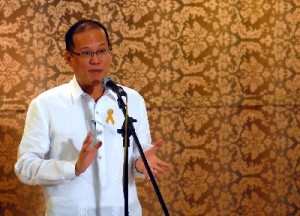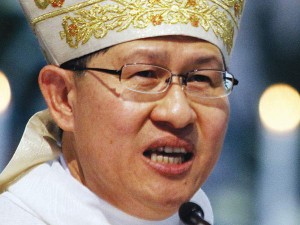MANILA, Philippines—President Aquino on Wednesday signed the expanded Anti-Trafficking in Persons Act, or Republic Act 10364, which provides for strengthened prosecution of those who engage or attempt to engage in human trafficking, as well as protection to trafficked victims.
It is Malacañang’s hope that the new law would result in the United States’ removing the Philippines from its anti-trafficking watchlist.
“This is a concern and a priority of our President and this measure will be enforced by the different agencies, especially by the Department of Justice as well as our police agencies,” said presidential spokesman Edwin Lacierda.
According to the Malacañang, the new law is an expanded and strengthened version of the Anti-Trafficking Law, and now covers attempted trafficking. It also has accessory liability as it covers more related acts and individuals.
Under RA 10364, recruitment in the guise of domestic or overseas employment for sexual exploitation, forced labor or involuntary debt bondage, can now be considered human trafficking.
Also considered as human trafficking are these acts: recruitment of any Filipino woman to marry a foreigner, engagement in sex tourism, recruitment for organ removal, and recruitment of a child to engage in armed activities abroad.
Penalties range from six months’ community service to 20 years imprisonment, and a maximum fine of not less than P2 million.
Lacierda said that the Philippines was making progress in cutting down human trafficking.
“Over a year ago we were taken out of that category—Tier 2. [But] we’re still in the watchlist. We would like to improve our standing in the watchlist and we hope that, with this expanded coverage of anti-trafficking, we will be able to remove ourselves from the watchlist,” he told a Palace briefing.
In 2011, the Philippines was upgraded from Tier 3 to Tier 2 in the Watchlist of the Trafficking in Persons Report of the US State Department. This meant that the country was making serious efforts to deal with human trafficking although it had not fully met the standards imposed by the internationally recognized Trafficking Victims Protection Act.
Former US Secretary of State Hillary Clinton had cited the Philippines as “among the countries that have made a lot of progress” in the global campaign against human trafficking.
Sen. Loren Legarda, the principal sponsor of the measure in the Senate, said the new law would strengthen the fight against the abuse of women and children who are the ones being mercilessly trafficked.
She said she hoped to live to see the day that human trafficking for sexual exploitation or labor is finally eliminated.



